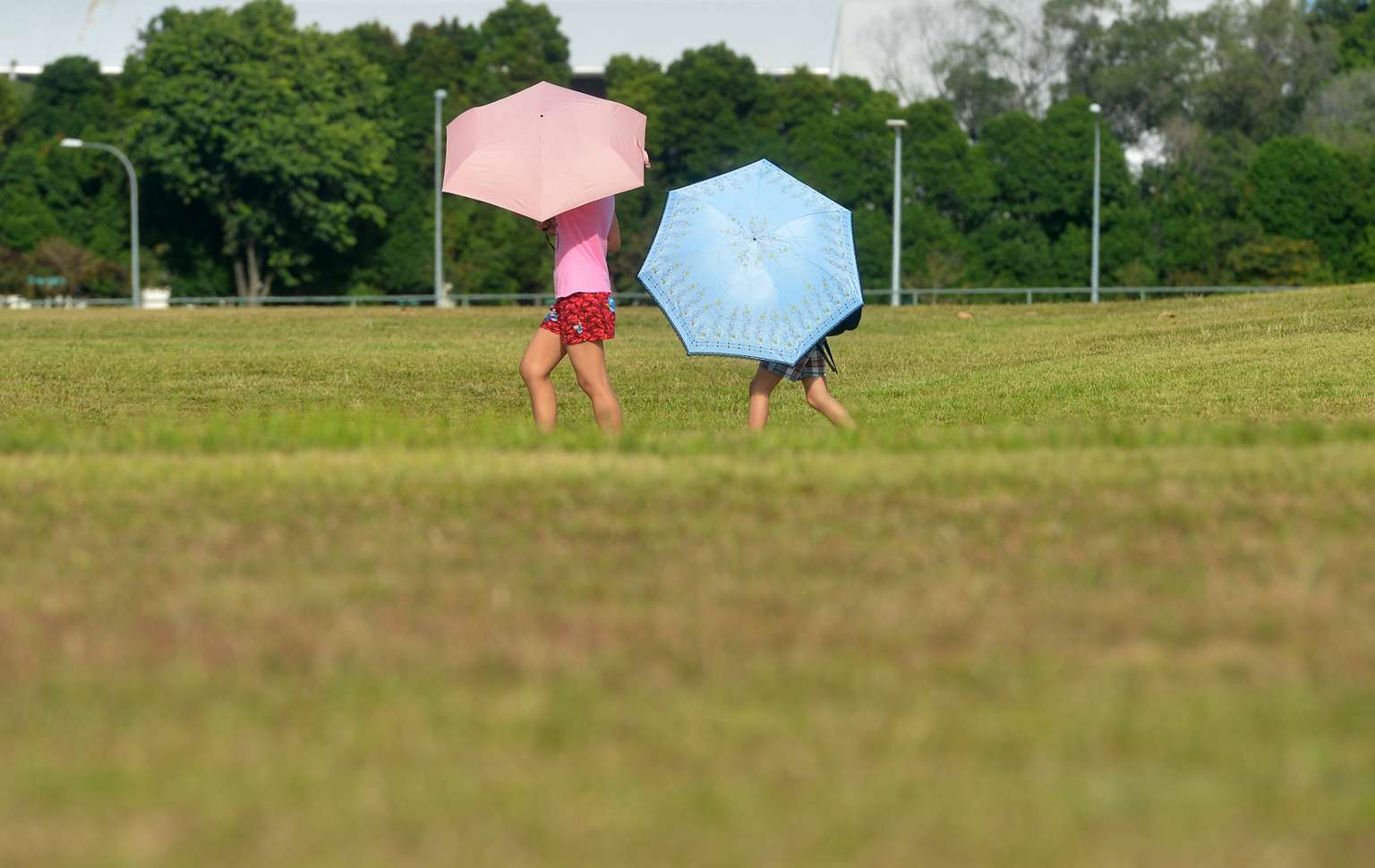Tuesday was Singapore's hottest day on record with an average daily temperature of 30.6 deg C
Sign up now: Get ST's newsletters delivered to your inbox

Singapore experienced its hottest day on record on April 19, 2016.
ST PHOTO: ALPHONSUS CHERN
SINGAPORE - Singapore experienced its hottest day on record on Tuesday (April 19), as the authorities urged people to take measures to avoid getting heat stroke and other related illnesses.
The mercury shot to 36 deg C at Choa Chu Kang, but the average daily temperature - a gauge of how warm a place is - hit a record 30.6 deg C, up from the previous high of 30.2 deg C on June 22 last year.
The average daily temperatures were measured at the Changi climate station, which is used as Singapore's reference station.
April is typically the warmest month of the year, with a long term mean monthly temperature of 28 deg C.
This year, the Republic has really been feeling the heat.
Over the last three days, the highest temperatures recorded ranged from 35.1 - 36.4 deg C. A week earlier, (April 13), it had soared to a 10-year high of 36.7 deg C.
The scorching weather is expected to persist for the rest of the week, says the weatherman, although this may ease gradually as more showers are expected closer to the weekend.
But the sizzling temperatures have stopped short of a heatwave, after thundery showers offered some respite on Wednesday (April 20).
More showers are also expected in the next few days, the National Environment Agency (NEA) said.
A heatwave occurs when the daily maximum temperature is at least 35 deg C on three consecutive days, and the daily mean temperature throughout the period is at least 29 deg C.
In a joint advisory with the ministries of Social and Family Development, Education, Manpower and Health on Wednesday, the NEA said warm temperatures are common during the Inter-monsoon months of April and May when there is strong solar heating but light winds.
"In addition, the prevailing strong-to-moderate El Nino is a contributing factor to the current warm conditions," it added.
But it noted that temperatures here are unlikely to reach 40 deg C, as experienced recently in northern Peninsular Malaysia, due to the moderating effect of surrounding seas on the temperature.
The agencies said people can minimise the risk of heat-induced illnesses by wearing loose-fitting, heat-permeable and light-coloured clothing and taking more breaks between activities, among other things.
Sustained outdoor activities at schools, child care centres, kindergartens and homes should also be minimised during the hotter period of the day and the intensity of these activities should be moderated, and employers should schedule heavy physical or outdoor work to the cooler parts of the day.
Separately, the Defence Ministry said the Singapore Armed Forces has in place a work-rest cycle guideline which ensures that servicemen train and operate safely even when the outdoor temperatures are high.


